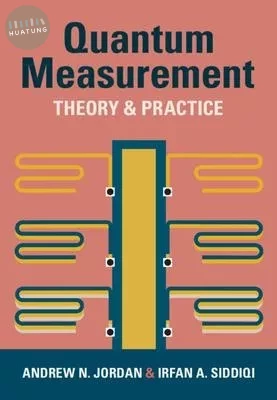
| 定價: | ||||
| 售價: | 2050元 | |||
| 庫存: | 已售完 | |||
| LINE US! | ||||
| 此書為本公司代理,目前已售完,有需要可以向line客服詢問進口動向 | ||||
| 付款方式: | 超商取貨付款 |

|
|
| 信用卡 |

|
||
| 線上轉帳 |

|
||
| 物流方式: | 超商取貨 | ||
| 宅配 | |||
| 門市自取 |
為您推薦

類似書籍推薦給您

類似書籍推薦給您

類似書籍推薦給您

類似書籍推薦給您
【簡介】 The impact of quantum mechanics on our day-to-day life is growing at an exponential rate, of which most people are unaware. For example, the toaster is a prime example of a quantum mechanical device. While quantum mechanics arose as a subject in physics, quantum mechanical thinking has had, and continues to have, a broad impact on mathematics. For example, operator theory as we know it today would not exist without von Neumann’s effort to put quantum mechanics on a solid mathematical foundation. This book is defined for undergraduate students of mathematics to obtain an introduction to quantum mechanical ideas, and the associated mathematics, without requiring an extensive background in physics.This book is focused around the following topics. 1) The Mathematical Structure of Quantum Mechanics. We develop the main mathematical structure of quantum theory in the setting of the accepted postulates of quantum mechanics. Dirac’s bra-ket notation for the required linear algebra aspects will be utilized, as well as the mathematical and physical implications arising from the mathematical aspects of self-adjoint linear operators, with emphasis on the finite dimensional setting. 2) Dynamics of a Quantum Particle. We introduce the Schrodinger equation and discuss its physical meaning and mathematical structure. The required partial differential equations theory is elementary, and will be developed from scratch. 3) Measurement, Time Evolution, Uncertainty, and the Harmonic Oscillator. This builds on the previously developed mathematics and culminates with a detailed discussion of the quantum mechanical workhorse example - the harmonic oscillator. 4) Quantum Mechanics of Angular Momentum. Most of the book is developed in the context of the (relatively) simple one dimensional quantum systems. This topic goes into three dimensions and illustrates how very interesting mathematics can yield novel physical explanations that are unobtainable with classical methods. 5) The Postulates of Quantum Mechanics, Measurement, Composite Systems, Tensor Products, and Entanglement. This is the area that most students have heard of - quantum entanglement, "action-at-a- distance" and Bell’s inequality. The mathematics will be at an elementary level (except possibly for tensor products, which are sadly neglected many linear algebra courses today, but which are literally exploding in a variety of current applications).

類似書籍推薦給您
【簡介】 This book adopts a novel, physics-first approach to quantum measurement, using physical experiments as the basis to describe the underlying mathematical formalism. Topics covered include weak measurements, quantum measurement reversal, quantum trajectories and the stochastic path integral formalism. The theory of quantum measurement is also covered in detail, including discussion of how it can be tested and demonstrated in a laboratory: how to build quantum-limited amplifiers, fundamental noise limits imposed on measurement by quantum mechanics, and the design of superconducting circuits. This text is an excellent introduction for students with a basic understanding of quantum mechanics wanting to learn more about measurement theory, and the inclusion of a wide selection of end-of-chapter exercises make this book ideal for emerging courses on the topic. Key chapters introducing the foundations of quantum computing and the history of measurement theory are equally accessible to a broader, less specialised audience.